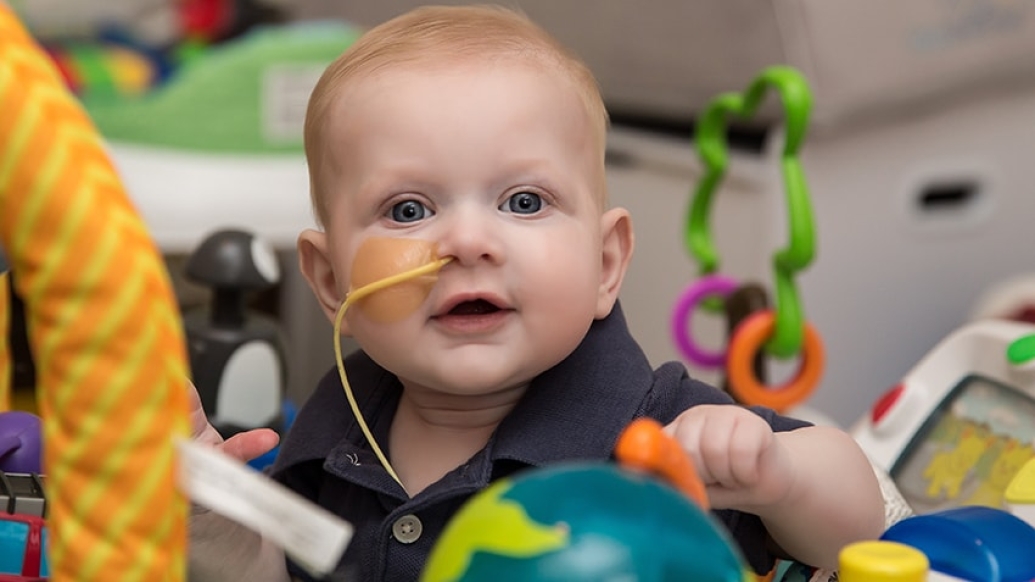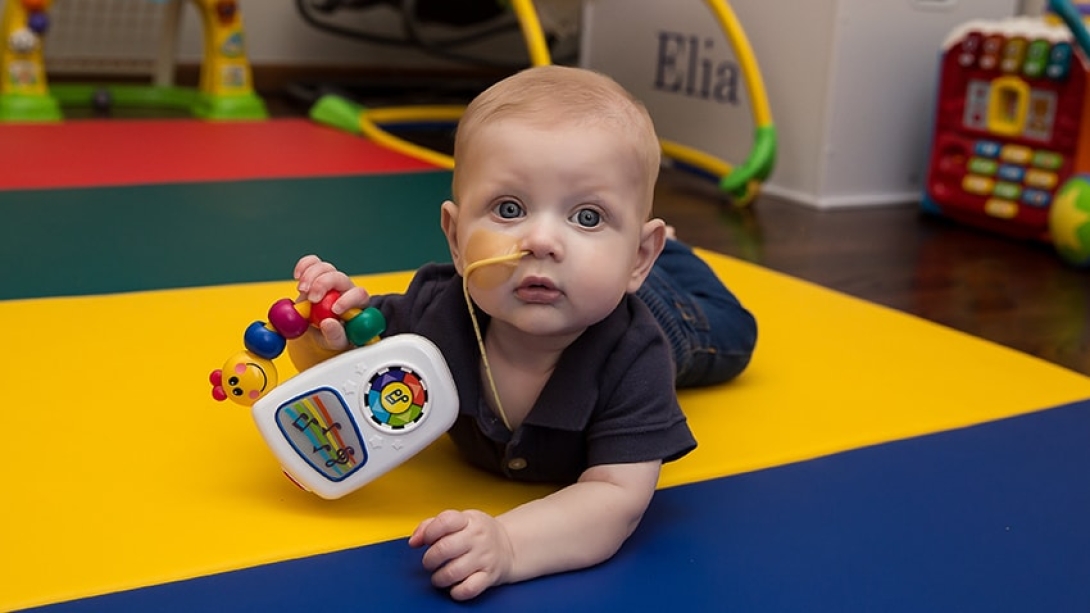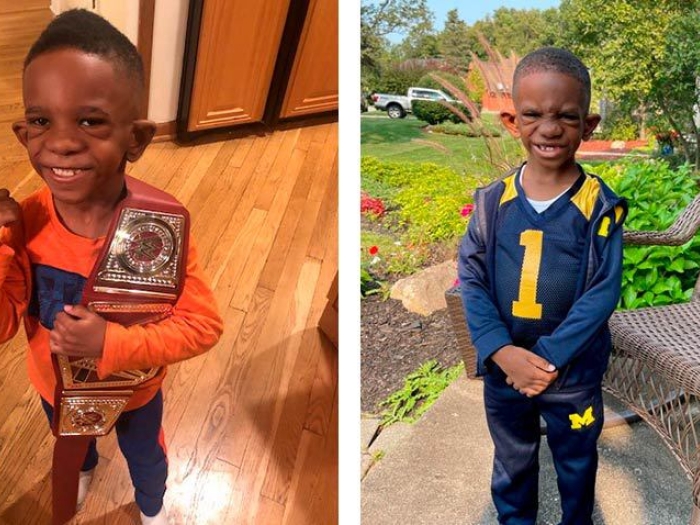Bone marrow drives as far away as Greece aim to find a match for 6-month-old Elias, whose dangerously weak immune system puts him at risk from even mild colds.
7:00 AM
Author |

Five hours after Elias was born, he turned beet red from head to toe.
His parents, Evelyn and Antonio Argirokastritis, were told not to worry. That it was most likely an allergic reaction or a bad case of eczema. But as the days went by, Elias broke out into pimplelike rashes, and his skin started peeling off his body "like a horrible sunburn," Evelyn says.
MORE FROM MICHIGAN: Sign up for our weekly newsletter
Fevers, lethargy and severe feeding troubles that caused weight loss followed, with Elias in and out of a hospital near the family's home in Macomb, Michigan. But the mysterious symptoms kept getting worse.
"The doctors were at a loss. We knew something was really wrong and that we had to get him to the right place," Evelyn says.
At 3 months old, Elias was transferred to University of Michigan C.S. Mott Children's Hospital, where he had several tests. The result: Fungus was growing in his lungs. His white blood cell count was abnormally high. And the baby boy was fighting three viruses and three bacterial infections.
"The doctor told us that these symptoms basically tell us his immune system isn't working," Evelyn says.
Elias was diagnosed with a rare immunodeficiency disease called NEMO, nuclear factor-kappa B essential modulator deficiency syndrome. The complex disease is caused by genetic mutations in the X-linked NEMO gene, affecting the skin and immune system and making patients susceptible to severe and life-threatening bacterial infections.
It affects only boys and is so rare that Elias' diagnosis in October made him just the 22nd registered NEMO case in the U.S. Immunodeficiency Network. USIDNET is a research program funded by the National Institutes of Health to help advance scientific research in primary immune deficiency diseases.

A need for a new immune system
For Elias, even minor illnesses could be life-threatening.
At Mott, he receives regular IV immunoglobulin infusions, which involve purified plasma pooled from thousands of blood donors along with other supportive care. The infusions give him antibodies to help keep him healthy.
SEE ALSO: 'Superhero' Brothers Bonded by Rare XMEN Disease
"NEMO is an incredibly rare and complex disease that we are still working to fully understand," says Mott pediatric hematologist Kelly Walkovich, M.D. "Because Elias' parents followed their instincts when there were no good explanations for his symptoms, our multidisciplinary immunohematology group was able to diagnose him quickly and begin treating the disease early enough to boost his immune system."
His family hopes his case helps answer more questions about the disease.
"He is one of the youngest diagnosed patients, so maybe whatever is learned from him can add to research and help save other lives," Evelyn says.
For now, Elias needs a bone marrow transplant to replace his faulty immune system with a healthy one.
His parents and volunteers have held bone marrow drives in the state, across the country and around the world, including in Greece, where his parents' families are from. Finding a match is sometimes most successful with donors who share ethnic origins, and Elias' parents are Greek-American.
The next bone marrow drives will be from 3 to 9 p.m. March 13-14 at The Hudson Cafe, 1241 Woodward Ave. in Detroit. All it takes is a cheek swab to get on the registry.
Evelyn hopes to find a match so her son can grow healthy and enjoy regular life with his family, including big sister Eleni, 2.
"New bone marrow is the only way to give him a new immune system that works," Evelyn says. "We all have plenty of bone marrow, and he needs just the smallest amount to overcome this. A bone marrow donation can give kids like him their whole life."

Explore a variety of healthcare news & stories by visiting the Health Lab home page for more articles.

Department of Communication at Michigan Medicine
Want top health & research news weekly? Sign up for Health Lab’s newsletters today!





